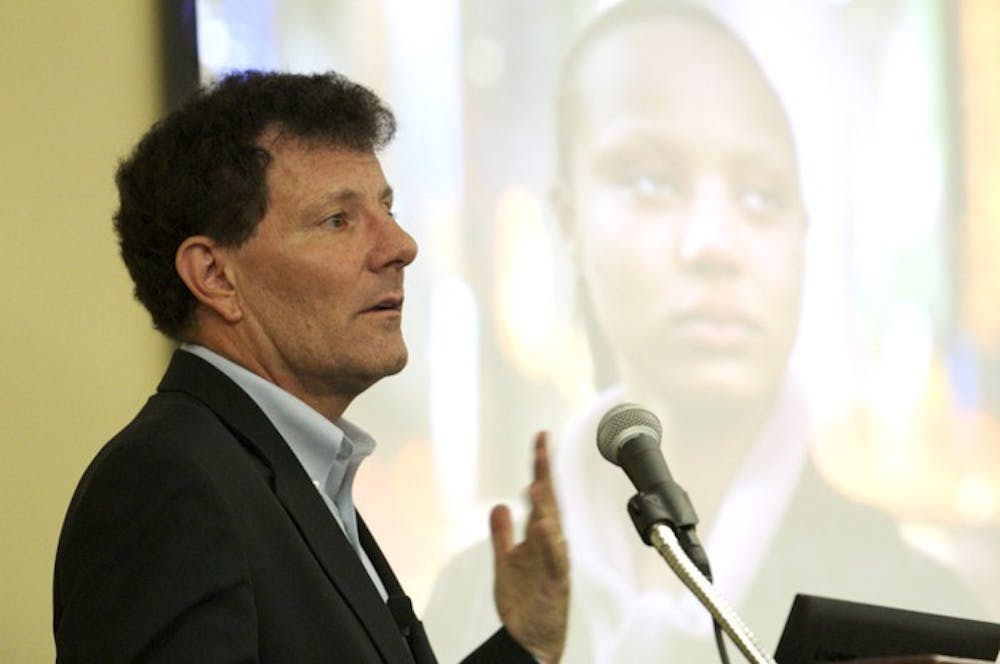Nicholas Kristof admits he is the last person you’d expect to write about women’s issues around the world.
But ever since the New York Times columnist visited China and helped set up a school for girls, his goals of writing about nuclear proliferation drastically changed.
“The cause of your time is going to be this gender inequity in so many countries around the globe,” Kristof told students at the University Club on Sept. 10 in a speech sponsored by the Student Government Kennedy Political Union and the AU Public Relations Student Society of America.
Kristof is a two-time Pulitzer Prize winner and the co-author of “Half the Sky: Turning Oppression into Opportunity for Women Worldwide.”
He told students, who sat on the floor by his podium when seating went scarce, that there’s “no silver bullet” for poverty but that education for young girls was an important first step.
Kristof has spent the latter part of his career highlighting the plight of human trafficking of young girls for prostitution, both abroad and in the United States.
“It looked exactly like what I would imagine slavery to be like,” Kristof told The Eagle in an interview.
Kristof got his start in journalism when he interned at the Washington Post. While jogging by AU during that summer, he said he often felt envious of students living in D.C.
But for all the opportunity D.C. has to offer, Kristof urged students to take a gap year before college or graduate school and explore the world.
“You can read about these issues. You can even watch them,” Kristof said. “But they only become real when you encounter them directly.”
Kristof has traveled to over 150 countries and said he has, in some ways, been able to shield himself from the horrors he sees in places like Darfur and Cambodia. Kristof said he was “embarrassed” to admit that he can be “numb” to violence he witnesses, searching among victims for the most tragic story.
“I want to use that time in that village [that I’m reporting on] to find the most compelling story I can find to get Americans to spill their coffee when they read the paper,” he said.
But not all is dark in Kristof’s world.
“I end up so inspired by the people I meet,” Kristof told The Eagle, “and invariably, side by side with the worst of humanity, see the best.”
zcohen@theeagleonline.com





